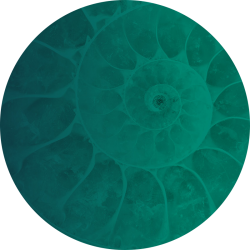

A circular bioeconomy system is more powerful and flexible, using the transformative capabilities of plants, animals and micro-organisms. They are more flexible as they can work at low temperatures, or use a variety of energy sources, to manufacture complex materials, some of which are impossible to make using non-biological processes.
Two recent projects at the Innogen Institute in the aquaculture industry sector are showing how new bio-materials, ProtonTM and fish feed, can deliver both climate change (Net Zero) and biodiversity protection (UN Sustainable Development Goals). The Institute’s approach is to develop these new materials in tandem with new societal and environmental policies needed to support the bioeconomy.
We are asking how you can get the best of all possible worlds, which of the many opportunities will offer optimal benefits and fewest disadvantages, and what kinds of policy support will be needed to deliver them.
Professor Joyce Tait, Co-Director, Innogen Institute, The University of Edinburgh.
Fish Farming in Scotland: optimising its contribution to climate and environmental policies
The production of protein for human consumption from cattle and sheep is a major source of greenhouse gas (GHG) emissions, particularly methane, and a shift to fish-based products would be an important contribution to Net Zero carbon emissions. However, less than 10% of wild fish stocks are currently under-fished, the rest being maximally exploited or over-exploited and unsustainable, so expansion in fish consumption will need to come from farmed species. For example, Scottish farmed salmon production is projected to rise six-fold by 2030. The biggest contribution to Net Zero policies would come from this switch in value chains from beef and sheep to aquaculture.
Within aquaculture, fish feed accounts for over 90% of the sector’s GHG emissions and, at 40-75% of total production cost, is the most expensive component of aquaculture production. Innovation in feed production, introducing a circular economy approach, can therefore deliver the biggest contributions from fish farming to biodiversity and climate change goals by replacing either wild-caught fish (with its negative biodiversity impacts) or vegetable sources like soya (with both biodiversity and climate change impacts).
New fish feed products in development at the Innogen Institute include insect larvae, micro-algae, and single celled protein (SCP), all produced using waste materials or by-products from other industry sectors (non-domestic food waste, by-products from the whisky industry, methane gas), contributing to several circular economy value chains.
Sustainable protein feed development: ProtonTM
One alternative feed source for fish and chickens is Proton™, produced by fermentation based on carbon dioxide (a by-product from bio-energy generation) and hydrogen. As well as contributing to a circular economy, this process avoids the use of starches and sugars in the fermentation process with a 90% saving on carbon footprint, reducing the related impacts on GHG emissions, land use, biodiversity, and food availability for human use.
This project is an example of companies collaborating to achieve net-zero carbon emissions and improvements in biodiversity impacts, involving companies at all stages along the value chain, from raw materials for fish feed production to supermarkets selling fish products to consumers.
The Innogen Institute’s role is to support responsible innovation by the companies involved, help them to demonstrate the social, environmental and biodiversity benefits of ProtonTM and encourage consumer acceptance.
Further information: https://www.innogen.ac.uk